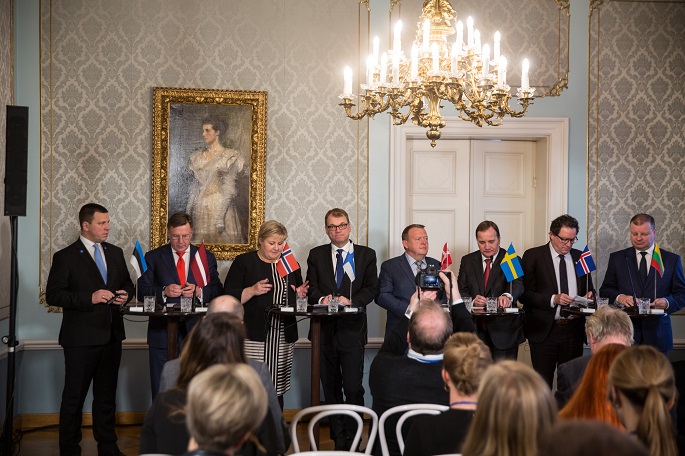Norden for more cooperation in defense, foreign policy
Published : 01 Nov 2017, 21:37
Updated : 01 Nov 2017, 21:39
The Nordic Council passed on Wednesday a new international strategy that urges the five Nordic countries to work more closely on foreign, defense and security policies.
The strategy is valid until 2022, according to a statement issued by the Council in Helsinki. It calls on the Nordic governments to make more use of the "opportunities inherent in Nordic cooperation" although not all of the countries are in the same alliances.
The strategy approved on Wednesday notes that the Nordic countries have "major strategic, military and security policy significance". The Council accentuates that Nordic defense cooperation threatens no one but helps ensuring "the stability and predictability in the region".
Of the five countries, Iceland, Norway and Denmark are in the NATO. Sweden and Finland do not belong to any military alliance. Norway and Iceland are not in the European Union, while Denmark, Finland and Sweden are. However, only Finland is part of the Eurozone.
The Council is a cooperative forum of the parliaments of the Nordic region. There is a parallel Nordic Ministerial Council for the governments. The Council wants the countries to continue their work on peace making and civil crisis management.
The rotating president of the Nordic Council, Finnish MP for the Aaland Islands, Britt Lundberg, told media that the strategy indicates a clear direction for the council's international work.
On environmental issues, the strategy reiterates that the council wants the region to be a world leader and driving force in pursuing the UN Sustainable Development Goals (SDGs). The Council is calling for greater attention to be paid to the SDGs in "bilateral talks and international forums involving the Nordic countries".
The Nordic Council will prioritize cooperation with neighboring regions, the Baltic Sea, the Arctic and the EU, said the statement.
Analysts noted the Nordic Council has come a long way from its early decades when security policy issues were avoided. During the early decades of the Nordic Council, foreign policy and security aspects of the region were not included in its agenda.


